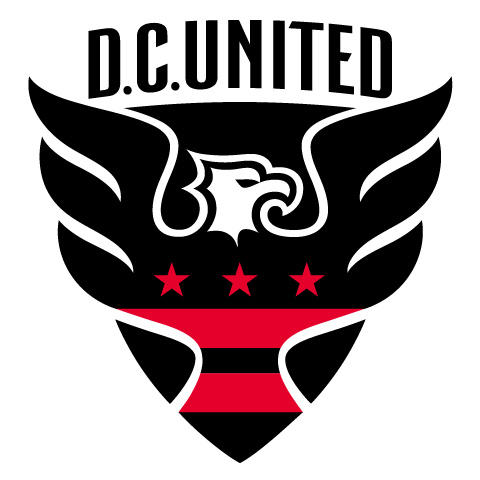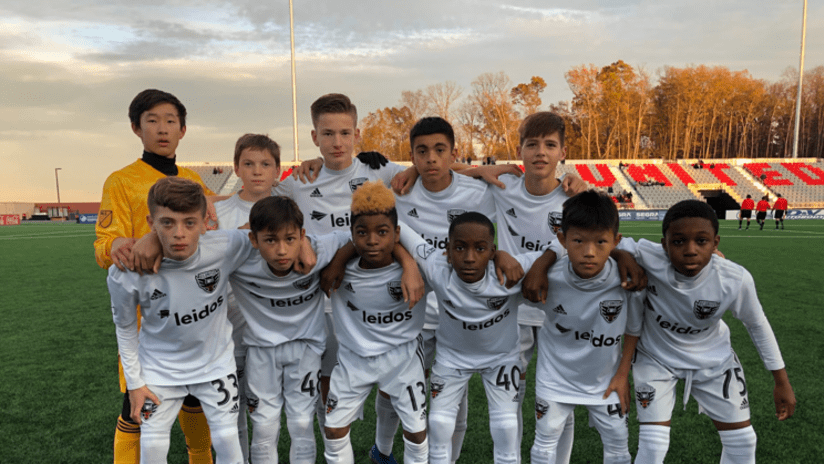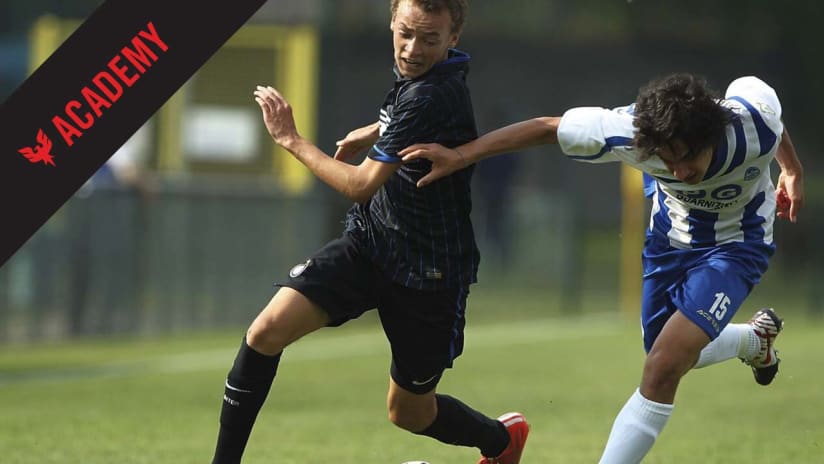More than three years removed from a concussion that ended his professional soccer career, Taylor Twellman's symptoms have yet to go away.
“Since August 30, 2008, no day has ever been the same,” Twellman told National Soccer Wire after he gave a sobering presentation on concussion awareness at the National Soccer Coaches Association of America Convention last week. “The one thing that I’ve done is that I haven’t worked out in two years to try and let my brain just heal itself, so that’s done well."
The former University of Maryland star, a product of St. Louis' well-respected Scott Gallagher Soccer Club, was known as a fierce competitor on the field, an aggressive striker who often gave up his body to make a play. The one that would ultimately end his career that day was no exception.
Twellman, who racked up 101 goals in playing his entire MLS career with the New England Revolution, went full force into a header, and while scoring a goal on the play, his jaw met the fist of L.A. Galaxy goalkeeper Steve Cronin, who had raced off his line to try to punch the cross that Twellman finished.
“I just ran as fast as I can into a goalie’s fist; it’s safe to say there’s a concussion there,” Twellman told his audience of coaches at the Kansas City Convention Center.
He initially celebrated his strike, but by the time teammate Shalrie Joseph reached him, he knew he was not well.
“I have a concussion,” Twellman recalled telling Joseph after the goal.
He recalls the aftermath of getting hit by Cronin.
“I go to the ground, blood’s coming out of my face,” Twellman said. “‘Taylor, where are you?’ ‘I’m in Foxborough...It’s a pretty good goal, right?’ I crack a joke. It was funny. And then you go through the process, and I keep hearing this saying that, back in the day, he had his bell rung. August 30, 2008 and I still wasn’t diagnosed with a concussion.”
Before he came out of the match, Twellman missed a seven-yard shot. It’s not normally the cause for celebration, but he did, getting odd looks from teammates.
While he later came out of the match, he was not properly diagnosed with a concussion – something he doesn’t blame on the Revolution training staff, MLS or anyone else. And, even as he had to sit in dark rooms to deal with the symptoms, Twellman played eight more weeks, scoring seven goals in nine games, before recurring symptoms forced him to retire.
During the symposium, Twellman had to compose himself after seeing video of the play for the first time in more than 18 months. His nausea nearly got the best of him as well.
“You guys look at me right now, I look completely normal,” Twellman said with a chuckle. “I look normal, right? I look fairly normal. [But] I can throw up right now, my nausea is at about an eight on a one-to-10 scale.”
His nausea is something that hasn’t gone away, but his vision has improved and his memory has stayed intact throughout. Still, he can’t look at a computer or smartphone for more than 10 minutes at a time.
“Every day’s different,” Twellman said. “One day I could have a real great day, and then the next day, I just need to chill and kind of bring the dark room aspect of my life back in and just recuperate.”
Twellman went 27 months without having dreams and had his first one just six months ago.
He said being on camera doesn’t bother him until after he goes off air.
“I’ve gotten to a point where I can be on TV for three or four hours, and then when I go home at night, I’ve got a pretty good headache,” Twellman said.
The anxiety of a concussion is a nightmare for an athlete, he said.
“When you tell an athlete he has a mild concussion, what do you guys hear?” Twellman asked the coaches in the audience. “When you hear the word, mild, what do you think? ‘It’s going to be fine.’
"Somebody ask [hockey star] Sidney Crosby how fine his concussion is. There are mild concussions…but when you tell an athlete like myself or anyone, or a 12-year old kid, you’ve got a mild concussion, I’d love to hear us say, ‘You’re concussed. You’ve got a concussion.' If it’s gone in 48 hours, great. But the anxiety part of this is a nightmare for an athlete. You’re completely helpless.”
Twellman went to four emergency rooms and said all cleared him to play within 48 hours. He said he saw “every doctor,” – it took him 18 months just to find the right doctor – woke up for four straight months at 6 a.m. for acupuncture treatments, craniosacral therapy, even going into a hyperbaric chamber – nothing worked.
What did?
Someone calling him and simply asking how he was doing.
“U.S. Soccer’s done a phenomenal job of keeping doctors and people together, and I’m the forefront of the committee, because it was my idea, and Ruben [Echemendia] jumped in,” Twellman said. “And we just don’t want anyone to go through what I’m going through.”
Echemendia is a clinical neuropsychologist who designed a concussion treatment program for the National Hockey League before moving on to help craft MLS' approach to the issue.
Awareness of concussions is increasing. Twellman heads an MLS committee on the issue, and with a number of MLS players having had their careers cut short – Alecko Eskandarian, Josh Gros, Bryan Namoff, Jimmy Conrad and Ross Paule, among others – players are more conscious of it. But dealing with concussions, both in terms of prevention and living with or overcoming their lingering symptoms, is another issue.
Twellman's new website, thinktaylor.org, has been established as a resource for education, support and fundraising about concussions. The site will help those with concussions connect with a neurologist in their state.
“It’s going to be your concussion management resource,” Twellman said. “You get a concussion, come to us, thinktaylor.org, and we’ll help you see the right people and as fast as you can.”
He said baseline tests are a tool, but aren’t foolproof. The imPACT (Immediate Post-Concussion Assessment and Cognitive Testing) test, given after a concussion is suspected, is not infallible.
“I’ve taken the imPACT test and never failed it,” Twellman said. “The imPACT test is a tool. It’s not a way to diagnose a concussion. If you fail the imPACT, you’ve got a concussion, but there’s guys right now that can pass an imPACT test and still have post-concussion syndrome. So people should realize that it helps. Everyone should have baseline testing, but don’t let that be the mechanism in determining whether or not you have a concussion.”
He cautions that even more than three years after he suffered his, understanding of concussions remains incomplete. Athletes are in trouble if they play with an injured brain, Twellman noted, but if they get the proper care, “the brain heals itself.” He said to take the injury seriously.
“There’s one injury in professional sports that changes your life, and it’s brain injuries, ” Twellman said. “You can have a knee, you can have an ankle, you can have a hip – you can have all those replaced. If you don’t treat and respect the injury the right way, you lose your life, and that’s the only message that I tell.”


